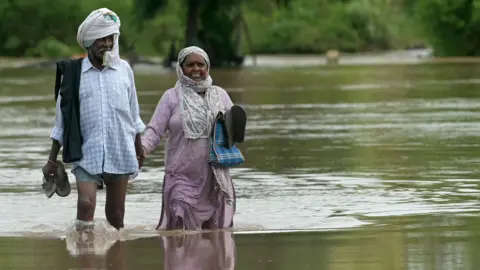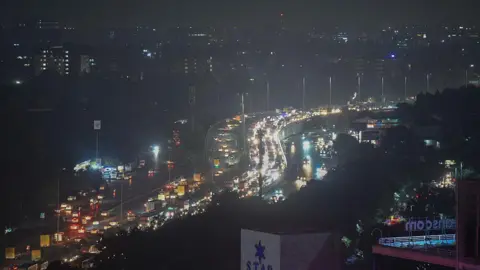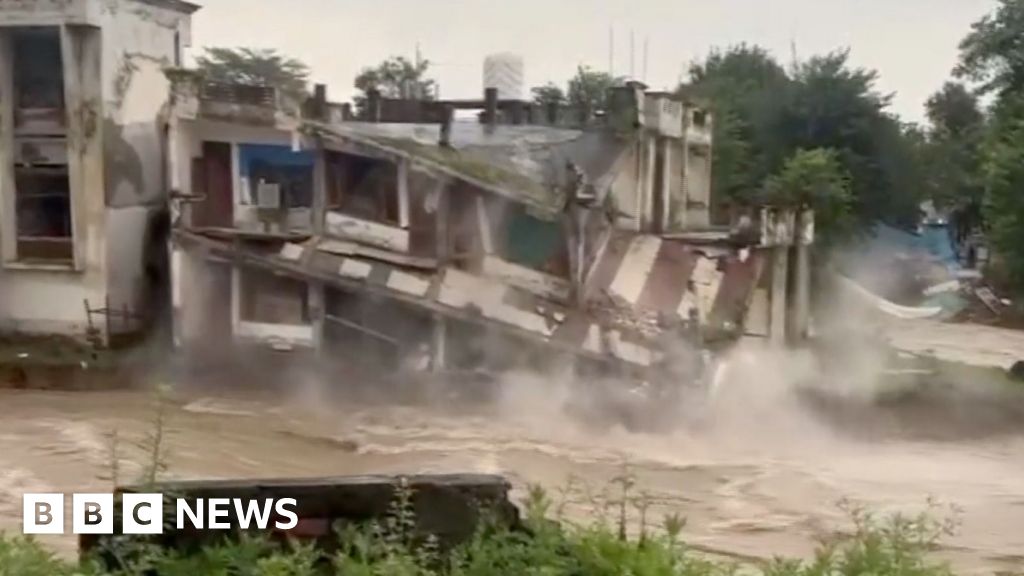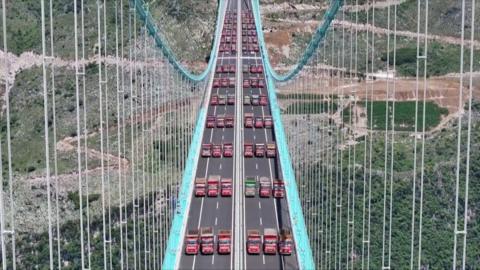As the summer sun blazes over Montgat, a coastal town near Barcelona, the beach once filled with families crafting sand castles and enjoying the balmy weather stands starkly altered. Young Sofia Mella recalls, “From here to there, it was all sand,” but now the shoreline reflects a harsh reality where space for relaxation shrinks with every passing year.
This dramatic transformation is emblematic of a broader trend as climate change wreaks havoc across southern Europe. Countries including Spain, Italy, Greece, and France face increasingly severe weather phenomena—storms bombarding beaches and rising sea levels erasing beloved shorelines. Alongside these visible shifts, the continent grapples with severe heat, catastrophic wildfires, and flooding, driving away once-loyal visitors.
In light of these changes, the traditional hotspots for tourists are losing their appeal. Experts predict another wave of oppressive heat is on the horizon, further endangering the health and safety of local residents and making vacationers reconsider their travel plans. Activists, especially those concerned about the negative impact of overtourism, find scant solace in the withering heat; instead, they regard it as a shared adversary.
Daniel Pardo Rivacoba, a member of a group advocating against the pitfalls of overtourism in Barcelona, has changed tactics in response to the risks posed by intense weather. Last summer, his team drew attention by playfully spraying tourists with water guns as part of their protests. This year, however, the oppressive sun has forced them to redirect their playful antics towards themselves, a serious indication of climate's toll on both the locals and the holidaymakers.
As the heat continues to rise, so too does the urgency for action against climate change and the subsequent threats to the paradisiacal images of Europe’s summer seasons. The time for awareness and adaptive strategies is now, as the continent grapples with the consequences of a rapidly changing environment and its impact on cherished traditions and livelihoods.
This dramatic transformation is emblematic of a broader trend as climate change wreaks havoc across southern Europe. Countries including Spain, Italy, Greece, and France face increasingly severe weather phenomena—storms bombarding beaches and rising sea levels erasing beloved shorelines. Alongside these visible shifts, the continent grapples with severe heat, catastrophic wildfires, and flooding, driving away once-loyal visitors.
In light of these changes, the traditional hotspots for tourists are losing their appeal. Experts predict another wave of oppressive heat is on the horizon, further endangering the health and safety of local residents and making vacationers reconsider their travel plans. Activists, especially those concerned about the negative impact of overtourism, find scant solace in the withering heat; instead, they regard it as a shared adversary.
Daniel Pardo Rivacoba, a member of a group advocating against the pitfalls of overtourism in Barcelona, has changed tactics in response to the risks posed by intense weather. Last summer, his team drew attention by playfully spraying tourists with water guns as part of their protests. This year, however, the oppressive sun has forced them to redirect their playful antics towards themselves, a serious indication of climate's toll on both the locals and the holidaymakers.
As the heat continues to rise, so too does the urgency for action against climate change and the subsequent threats to the paradisiacal images of Europe’s summer seasons. The time for awareness and adaptive strategies is now, as the continent grapples with the consequences of a rapidly changing environment and its impact on cherished traditions and livelihoods.





















